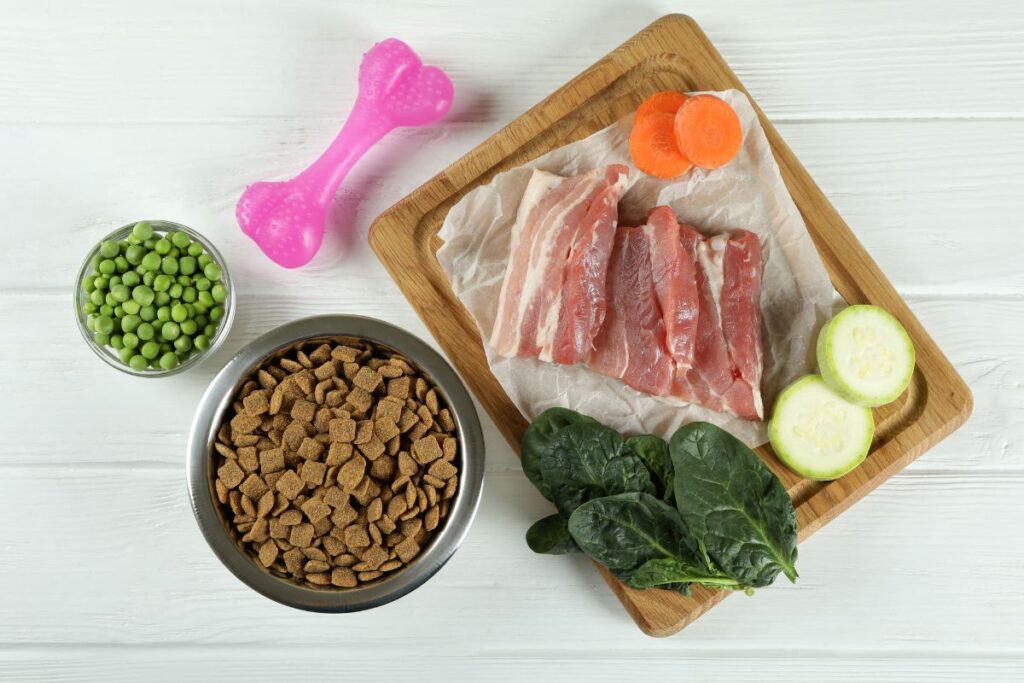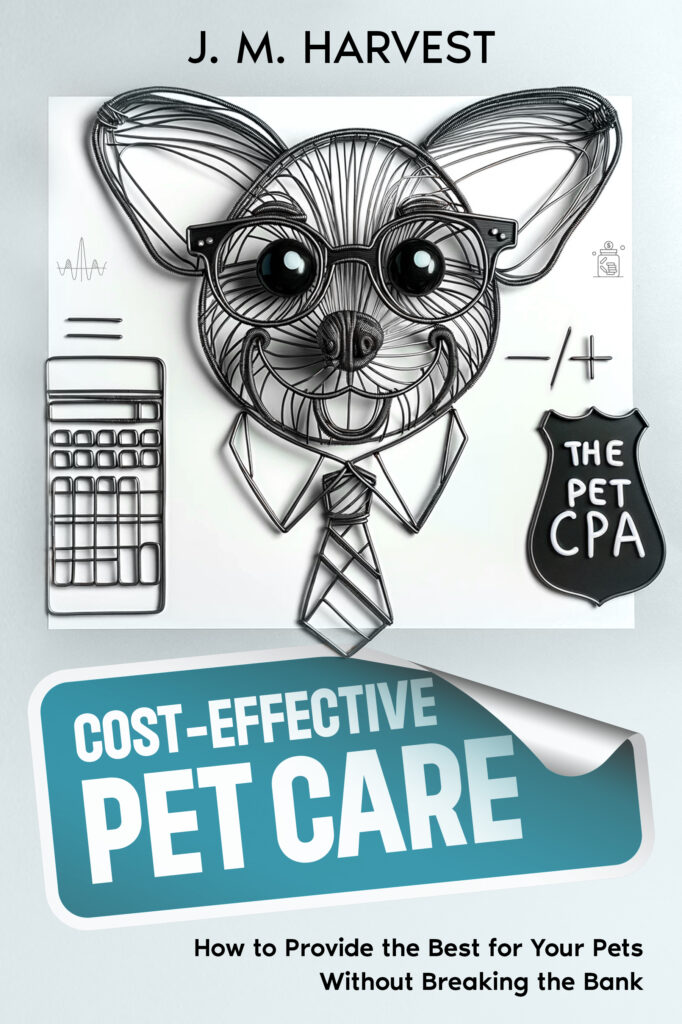We are here to dive deep into the world of holistic nutrition, a field that’s gaining popularity for its comprehensive approach to health and wellness. Unlike conventional nutrition, which often focuses solely on the physical aspects of diet, holistic nutrition considers the whole being—mind, body, and spirit—whether we’re talking about humans or our beloved pets. By integrating all these facets, holistic nutrition aims to achieve balance and promote overall well-being. In this article, we will explore the principles of holistic nutrition, its benefits, practical applications for pet owners, and how to make it an integral part of your pet’s lifestyle.
Introduction to Holistic Nutrition
What is Holistic Nutrition?
Holistic nutrition is more than just a dietary plan; it’s a philosophy that views health as a reflection of the complex interplay between various aspects of life, including physical, mental, emotional, and spiritual health. This comprehensive approach emphasizes that no single part of the body operates in isolation. For our pets, this means their diet and lifestyle choices can significantly impact their overall health and happiness. Holistic nutrition focuses on the idea that food should be used as medicine—a tool to heal, support, and nourish every part of the body (Nutrition Professionals, IIN).
Core Principles of Holistic Nutrition
The core principles of holistic nutrition revolve around an integrative approach to health and wellness. This includes:
- Whole Foods and Nutrient Synergy: Emphasizing unprocessed, natural foods that are rich in essential nutrients. For pets, this might mean incorporating whole meats, fresh vegetables, and grains that are minimally processed to preserve their nutritional integrity. The synergy between nutrients—how they work together to enhance absorption and effectiveness—is crucial. For example, certain vitamins in vegetables are better absorbed with fats, illustrating how a balanced, whole-food diet can maximize nutritional benefits (Joyful Life Magazine,NutriSource).
- Food as Medicine: This principle is central to holistic nutrition. It suggests that the right food choices can prevent disease and even act as treatment for existing conditions. For pets, this could mean using a diet rich in omega-3 fatty acids for anti-inflammatory benefits or incorporating antioxidant-rich foods like blueberries to support immune function (Joyful Life Magazine).
- Customized Nutrition Plans: Recognizing that each pet is unique with specific dietary needs based on factors like age, breed, health status, and lifestyle. A one-size-fits-all approach does not apply here; instead, holistic nutrition tailors plans to the individual, considering allergies, sensitivities, and personal health goals (NutriSource).
Benefits of Holistic Nutrition
Holistic nutrition offers numerous benefits that extend beyond simple nourishment:
- Promotes Overall Health: A holistic diet can enhance your pet’s immune system, support healthy skin and coat, improve digestion, and increase energy levels. By focusing on whole foods and balanced nutrition, you provide your pet with the building blocks they need for optimal health (Arhanta Yoga Ashrams).
- Supports Disease Prevention and Management: By incorporating foods that have specific health benefits—like anti-inflammatory properties or immune-boosting capabilities—holistic nutrition can help prevent common health issues in pets, such as arthritis, allergies, and digestive disorders. It can also be used to manage chronic conditions by reducing symptoms and improving quality of life (Arhanta Yoga Ashrams,The Holistic Highway).
- Enhances Mental and Emotional Well-being: Just like in humans, diet plays a significant role in your pet’s mood and behavior. A balanced, nutrient-rich diet can help alleviate anxiety, improve mood, and even enhance cognitive function, contributing to a happier, more relaxed pet (The Holistic Highway).
Practical Applications of Holistic Nutrition
The Role of a Holistic Nutritionist
A holistic nutritionist specializes in creating personalized dietary plans that consider all aspects of health. When it comes to pets, these professionals can help tailor nutrition strategies that address specific health concerns, lifestyle factors, and individual preferences. Unlike traditional nutritionists or dietitians, who may focus primarily on calorie counting or macronutrient ratios, holistic nutritionists look at the bigger picture. They consider how different foods and lifestyle changes can work together to support overall well-being (IIN).
Key Responsibilities of a Holistic Nutritionist for Pets:
- Intake Evaluations: Conduct comprehensive assessments that include not just dietary habits, but also lifestyle, environment, and even emotional health. For pets, this might involve understanding their activity level, any existing health conditions, and even their temperament or stress levels (IIN).
- Meal Planning: Develop customized meal plans that incorporate whole foods and supplements, if necessary. For example, a nutritionist might recommend a diet high in lean meats and vegetables for an overweight pet, or suggest incorporating bone broth for a pet with joint issues (IIN).
- Lifestyle Assessments: Evaluate and suggest changes in lifestyle that can enhance a pet’s overall well-being. This could include advice on physical activities, playtime, and mental stimulation that complement their dietary needs (IIN).
Developing a Holistic Nutrition Plan
Creating a holistic nutrition plan for your pet involves several steps:
- Assess Your Pet’s Needs: Start by evaluating your pet’s current health status, including any medical conditions, allergies, or sensitivities. Also, consider their age, breed, and typical activity levels. A senior dog, for example, might benefit from a diet that supports joint health, while a younger, more active pet may require more protein and healthy fats (Joyful Life Magazine).
- Choose Whole, Unprocessed Foods: Opt for fresh, natural ingredients that are free from artificial additives and preservatives. This could include lean meats, fish, vegetables, fruits, and whole grains. For example, chicken, carrots, and brown rice can make a nutritious and balanced meal for most dogs (Joyful Life Magazine).
- Incorporate Supplements Wisely: Supplements can fill nutritional gaps or address specific health needs. For pets, common supplements might include omega-3 fatty acids for skin and coat health, probiotics for digestive support, or glucosamine for joint care. Always consult with a holistic veterinarian before adding supplements to your pet’s diet (NutriSource).
- Monitor and Adjust: Holistic nutrition is not a set-it-and-forget-it approach. Regularly monitor your pet’s health and behavior to assess how well the nutrition plan is working. Be prepared to make adjustments based on their response to the diet, any changes in health status, or even seasonal variations in their activity level and environment (Joyful Life Magazine).
Key Components of a Holistic Diet
A holistic diet for pets emphasizes balance and variety. Here are the core components to consider:
- Proteins: Lean meats, fish, and eggs are excellent sources of protein that support muscle maintenance and overall health. For pets with sensitivities, alternative protein sources like lamb or duck can be beneficial (Arhanta Yoga Ashrams).
- Vegetables and Fruits: These provide essential vitamins, minerals, and antioxidants. Dark leafy greens, carrots, blueberries, and apples are all great choices. Just ensure to avoid toxic foods like grapes and onions (The Holistic Highway).
- Whole Grains: Brown rice, quinoa, and oats are good sources of complex carbohydrates and fiber. They provide energy and support digestive health. However, some pets may have grain sensitivities, so it’s important to monitor their response (Arhanta Yoga Ashrams).
- Healthy Fats: Fats are crucial for brain health, skin and coat condition, and overall energy. Include sources like fish oil, flaxseed oil, and coconut oil. These not only provide essential fatty acids but also help with the absorption of fat-soluble vitamins (The Holistic Highway).
Holistic Approaches to Specific Health Issues
Holistic nutrition can be a powerful tool in managing and preventing various health conditions in pets:
- Digestive Disorders: For pets with sensitive stomachs or digestive issues, a diet rich in probiotics, prebiotics, and fiber can support gut health and improve digestion. Foods like pumpkin, sweet potato, and fermented vegetables are excellent choices (Nutritional Therapy Association).
- Allergies and Skin Conditions: An elimination diet can help identify food sensitivities that may be contributing to allergies or skin issues. Once triggers are identified, a diet free from allergens and rich in anti-inflammatory foods like salmon, chia seeds, and turmeric can help manage symptoms (NutriSource).
- Joint Health: For pets with arthritis or joint pain, incorporating anti-inflammatory foods and supplements can provide relief. Glucosamine, chondroitin, and omega-3 fatty acids are commonly used to support joint health. Bone broth is another great addition, as it provides collagen and other nutrients that support joint function (NutriSource).
Holistic Nutrition and Lifestyle Integration
To truly embrace holistic nutrition, it’s essential to integrate it into your pet’s overall lifestyle:
- Meal Planning and Preparation: Take the time to plan balanced meals that meet your pet’s nutritional needs. Preparing homemade meals allows you to control the ingredients and ensure that they are getting the highest quality nutrition. However, always consult with a holistic vet or nutritionist to ensure the diet is complete and balanced (The Wholesome Witch).
- Physical Activity and Mental Stimulation: A healthy diet should be complemented by regular exercise and mental stimulation. Engaging your pet in activities that challenge both their body and mind helps burn excess energy, prevents obesity, and reduces stress. This could include daily walks, play sessions, or training exercises that engage their problem-solving skills (IIN).
- Creating a Calm and Stress-Free Environment: Just as important as diet and exercise is creating a calm and stress-free environment is an essential part of a holistic approach to your pet’s well-being. Just like humans, pets can experience stress and anxiety, which can impact their physical health. Here’s how you can foster a serene atmosphere for your furry friend:
- Comfortable Living Spaces: Ensure that your pet has a comfortable, quiet space to rest and relax. This space should be away from loud noises, high-traffic areas, and other potential stressors. A cozy bed in a quiet corner or a crate covered with a blanket can create a safe haven for them to retreat to when they need some downtime (The Holistic Highway).
- Regular Routine: Pets thrive on routine, as it gives them a sense of security and predictability. Try to maintain a consistent schedule for feeding, walks, playtime, and bedtime. This can help reduce anxiety and make your pet feel more comfortable and secure (The Wholesome Witch).
- Mental Stimulation: Keeping your pet mentally engaged is crucial for reducing stress and preventing boredom, which can lead to destructive behaviors. Interactive toys, puzzle feeders, and training exercises can provide mental challenges and keep your pet’s brain active. This not only improves their cognitive function but also contributes to their emotional well-being (The Wholesome Witch).
- Environmental Enrichment: Provide a stimulating environment that encourages natural behaviors. For dogs, this might include access to safe outdoor spaces where they can run, explore, and sniff. For cats, consider adding climbing trees, scratching posts, and perches where they can observe their surroundings. Enriching your pet’s environment helps prevent behavioral issues and promotes a happy, contented pet (Arhanta Yoga Ashrams).
- Minimizing Stressors: Identify and minimize any sources of stress in your pet’s environment. This could include loud noises, unfamiliar visitors, or changes in routine. If your pet is sensitive to certain triggers, try to minimize their exposure or provide comfort during stressful situations. For example, playing calming music or using pheromone diffusers can help soothe anxious pets during thunderstorms or fireworks (The Holistic Highway).
- Quality Time: Spending quality time with your pet can strengthen your bond and provide emotional support. Whether it’s through play, grooming, or simply cuddling on the couch, positive interactions with their human companions can significantly enhance a pet’s emotional health and well-being (Arhanta Yoga Ashrams).
FAQs About Holistic Nutrition for Pets
What is the difference between holistic nutrition and traditional nutrition?
Holistic nutrition takes a comprehensive approach to health by considering not just the physical needs of a pet but also their emotional and mental well-being. Traditional nutrition typically focuses more on macronutrient ratios and calories, while holistic nutrition emphasizes whole foods, nutrient synergy, and the interconnectedness of all aspects of health (Nutrition Professionals, IIN).
How can holistic nutrition help with chronic illnesses in pets?
Holistic nutrition can help manage and even prevent chronic illnesses by addressing the root causes of health issues and supporting overall wellness. For example, a diet rich in anti-inflammatory foods can help manage arthritis, while probiotic-rich foods can support gut health and reduce the symptoms of digestive disorders (Joyful Life Magazine, NutriSource).
What are the best foods to include in a holistic diet for pets?
The best foods for a holistic diet include lean proteins like chicken and fish, fresh vegetables such as carrots and spinach, fruits like blueberries and apples, whole grains like brown rice and quinoa, and healthy fats from sources like fish oil and flaxseed oil. These foods provide a wide range of nutrients that support overall health and well-being (Arhanta Yoga Ashrams, The Holistic Highway).
Are there any risks associated with holistic nutrition for pets?
While holistic nutrition is generally safe and beneficial, it’s important to ensure that your pet’s diet is balanced and meets all their nutritional needs. Consulting with a holistic veterinarian or a certified pet nutritionist can help you create a diet plan that’s appropriate for your pet’s specific health requirements. Over-supplementation or unbalanced homemade diets can lead to nutritional deficiencies or imbalances (NutriSource, Arhanta Yoga Ashrams).
How can I find a qualified holistic nutritionist for my pet?
To find a qualified holistic nutritionist for your pet, look for professionals who are certified by reputable organizations such as the National Association of Nutrition Professionals (NANP) or the American Holistic Veterinary Medical Association (AHVMA). These professionals have the training and expertise needed to create customized nutrition plans that support your pet’s overall health (IIN, Nutritional Therapy Association).
What certifications should a holistic nutritionist have?
A qualified holistic nutritionist should have certifications from recognized institutions that demonstrate their knowledge and expertise in holistic health and nutrition. For pet nutritionists, certifications from the American Holistic Veterinary Medical Association (AHVMA) or a degree in animal nutrition or a related field are recommended. Additionally, practical experience working with pets and an understanding of holistic health principles are essential (IIN, Nutritional Therapy Association).
Conclusion
Holistic nutrition is an invaluable approach for pet owners who want to provide their furry friends with the best possible care. By focusing on whole, natural foods, considering all aspects of health, and integrating a balanced diet with a supportive lifestyle, you can help your pet achieve optimal health and happiness. Remember, every pet is unique, so it’s important to tailor their diet and care to their individual needs. By embracing holistic nutrition and lifestyle practices, you are setting your pet on a path to a healthier, happier life.



![]()
![]() Full of money-saving tips, it’s perfect for anyone who wants to pamper their pets without going broke!
Full of money-saving tips, it’s perfect for anyone who wants to pamper their pets without going broke!![]() Facebook: @thepetcpa
Facebook: @thepetcpa ![]() Instagram: @thepetcpa
Instagram: @thepetcpa